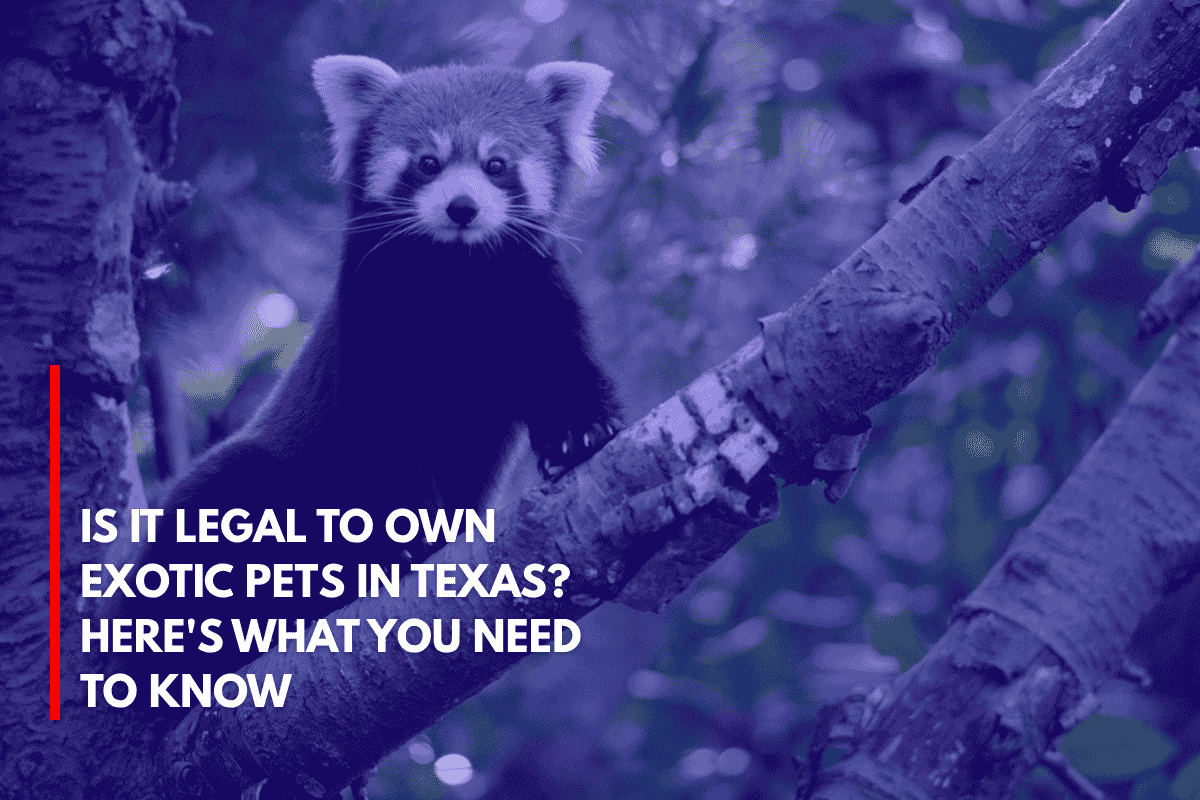Owning exotic pets in Texas is possible, but the legality depends on the specific animal and local regulations. Texas has some of the more permissive laws regarding exotic animals in the United States, but there are still important restrictions and requirements.
Key Points About Exotic Pet Ownership in Texas
State and Local Laws: Texas state law regulates the possession of wild and exotic animals, but many restrictions are determined at the county or city level. It is essential to check with your local government for any additional ordinances before acquiring an exotic pet.
Dangerous Wild Animals: Animals classified as “dangerous wild animals”—such as lions, tigers, bears, certain wild cats (like bobcats), and non-human primates—require a Certificate of Registration (COR) from the state. Owning these animals without the proper permit is illegal and can result in fines, confiscation, or criminal charges.
Endangered Species: It is illegal to own endangered species without a special permit. Federal laws, such as the Endangered Species Act, may also apply.
Native Wildlife: Most native Texas animals, including raccoons, coyotes, gray foxes, and mink, are illegal to keep as pets. These animals are protected to preserve public health and native ecosystems.
Non-Dangerous Exotics: Many exotic animals that are not considered dangerous or endangered can be owned without a state license, but you should still confirm with your county or city. Examples include capybaras, kinkajous, coatimundis, sloths, sugar gliders, fennec foxes (in some counties), wallabies, most non-venomous snakes, turtles (with some restrictions), lizards, and certain birds and invertebrates.
Recent Federal Laws: The Big Cat Public Safety Act (passed in December 2022) now prohibits private ownership of tigers, lions, leopards, and other big cats nationwide, with exceptions for those who registered their animals before June 2023.
Penalties: Violating exotic pet laws can result in significant fines, confiscation of the animal, and even criminal charges.
Common Legal and Illegal Exotic Pets in Texas
| Animal Type | Legal to Own? | Notes/Requirements |
|---|---|---|
| Capybaras | Yes (varies by county) | No state license required in most areas |
| Sloths | Yes (varies by county) | No state license required in most areas |
| Sugar gliders | Yes | No state license required |
| Fennec foxes | Yes (varies by county) | Check local regulations |
| Wallabies | Yes (varies by county) | No state license required in most areas |
| Non-venomous snakes | Yes | Exceptions for large constrictors |
| Turtles | Yes (with exceptions) | Endangered species and small turtles restricted |
| Lizards | Yes | Most species allowed |
| Parrots | Yes | Most species allowed |
| Tigers, lions, etc. | No (federal law) | Prohibited by Big Cat Public Safety Act |
| Raccoons, coyotes | No | Illegal |
| Bobcats | Yes (with permit) | Requires Certificate of Registration |
Texas allows the ownership of many exotic pets, but the rules are complex and vary by animal, county, and city. Dangerous wild animals and endangered species require special permits or are outright banned.
Always check with local authorities and the Texas Parks and Wildlife Department before acquiring an exotic pet to ensure compliance with all applicable laws.
Sources:
- https://guides.sll.texas.gov/animal-law/wild-animals
- https://ulg.law/texas-animals-illegal-pets/
- https://spectrumlocalnews.com/tx/south-texas-el-paso/news/2023/02/28/owning-an-exotic-animal-in-texas
- https://exoticpetwonderland.org/2024/01/02/what-exotic-pets-are-legal-in-texas/











Leave a Reply